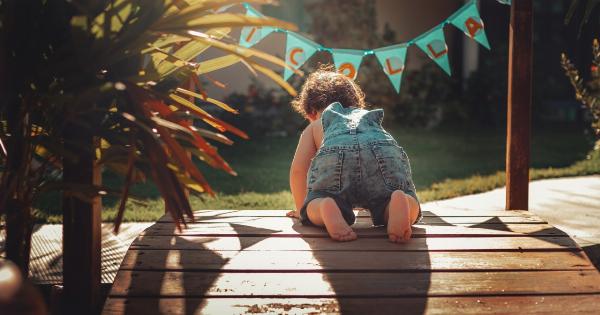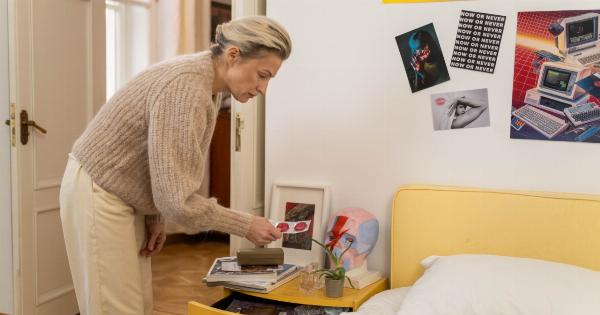As parents, we want to give our babies the best possible start in life. We provide them with love, care, and attention, ensuring their physical and emotional needs are met.
However, many parents may overlook the crucial role that proper coordination plays in the development of their baby’s brain. In this article, we will explore the importance of developing your baby’s brain through proper coordination.
What is Proper Coordination?
Proper coordination refers to the ability to use different parts of the body together efficiently and effectively. It involves the integration of various sensory systems, such as vision, hearing, and touch, with motor skills.
From the moment they are born, babies start to develop their coordination skills, beginning with basic movements like grasping objects and eventually progressing to more complex activities like walking and running.
Why is Proper Coordination Important?
Proper coordination is vital for your baby’s overall development, particularly their brain development. Here are some key reasons why it is important:.
1. Cognitive Development
Research has shown that there is a strong connection between a baby’s coordination and cognitive development.
When babies engage in activities that require coordination, such as reaching for a toy or stacking blocks, they are not only using their motor skills but also stimulating their brain. These activities promote the formation of neural connections and strengthen existing ones, laying the foundation for cognitive skills like problem-solving, memory, and attention.
2. Sensory Integration
Proper coordination helps babies integrate their sensory experiences. When they coordinate their movements, they are simultaneously processing information from different sensory systems, such as seeing, hearing, and feeling.
For example, when a baby reaches out to touch an object, their coordination skills enable them to combine visual information with tactile sensations. This integration of sensory information is crucial for understanding the world around them and making sense of their experiences.
3. Motor Skills Development
Developing proper coordination is closely linked to the development of motor skills. Motor skills can be classified into two main categories: gross motor skills and fine motor skills.
Gross motor skills involve larger movements, such as crawling, walking, and jumping, while fine motor skills involve smaller, more precise movements, like picking up objects with the thumb and forefinger. Both types of motor skills require proper coordination, as muscles and sensory systems must work together harmoniously.
4. Balance and Posture
Good coordination contributes to the development of balance and posture in babies. As babies gain control over their bodies and learn to coordinate their movements, they become more stable and can maintain balance more effectively.
This is essential for future physical activities and prevents the risk of falls and injuries. Developing proper coordination also helps babies achieve proper posture, which is not only important for physical health but also for promoting a positive body image and self-confidence.
5. Language and Communication
Coordination plays a significant role in the development of language and communication skills in babies. As babies learn to control their oral muscles and produce coordinated sounds, they begin to babble, imitate sounds, and eventually form words.
The coordination required for language development extends beyond speaking and includes gestures, facial expressions, and body language. Strong coordination skills facilitate effective communication and pave the way for language development.
How to Promote Proper Coordination in Babies?
Now that we understand the importance of proper coordination in your baby’s brain development let’s explore some practical ways to promote it:.
1. Tummy Time
From an early age, encourage tummy time for your baby. This helps strengthen their neck and shoulder muscles as they lift their head, promoting overall coordination and motor skills development.
Make tummy time enjoyable by placing colorful toys within reach, playing gentle music, or engaging in face-to-face interactions with your baby during this activity.
2. Play and Movement
Engage your baby in various play and movement activities that require coordination, such as reaching for toys, playing with building blocks, or crawling through tunnels.
These activities not only enhance coordination but also stimulate the senses and promote cognitive development.
3. Sensory Play
Provide your baby with opportunities for sensory play, such as exploring different textures, playing with water, or engaging in messy play with safe materials like finger paint.
These experiences help your baby develop their sensory integration skills, which are closely linked to coordination.
4. Encourage Crawling
Encourage your baby to crawl as it is a significant milestone in their motor development and coordination. Crawling helps strengthen muscles, improves balance, and enhances spatial awareness.
Create a safe environment for crawling by removing any hazards and providing soft surfaces to cushion falls.
5. Music and Movement
Expose your baby to music and encourage them to move their body in rhythm. Dancing and moving to music helps develop coordination while also providing a multisensory experience that stimulates the brain.
6. Patience and Support
Every baby develops at their own pace, so it is important to be patient and supportive.
Offer plenty of encouragement and create a nurturing environment that allows your baby to explore, experiment, and practice their coordination skills without fear of judgment or criticism.
Conclusion
Proper coordination plays a crucial role in your baby’s brain development. By promoting coordination through various activities and providing a supportive environment, you can enhance their cognitive, sensory, motor, and communication skills.
Remember, every baby is unique, and development occurs gradually, so be patient and enjoy this precious journey of supporting your baby’s brain development through proper coordination.






























